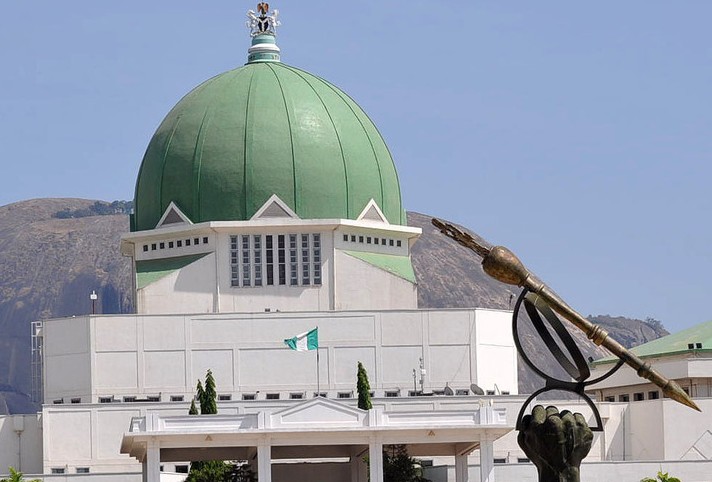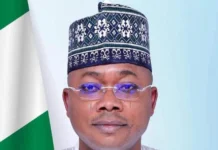The Tax Justice and Governance Platform (TJGP) has appealed to the National Assembly (NASS) to investigate the movement and spending of $3.4 billion loan obtained by the Federal Government through the International Monetary Fund (IMF).
The group made the appeal on Friday during a joint news briefing, along with the Christian Aid (CA) and the Civil Society Legislative Advocacy Center, in Port Harcourt.
The group’s Lead in Rivers, Mr Amaechi Justin, urged NASS to investigate the movement and spending of loans obtained by the Federal Government during the past and present administrations.
According to Justin, the loans are not limited to the $3.4 billion obtained from IMF as reported in the 2020 Annual Audited Report published by the Office of the Auditor-General of the Federation.
“As advocates of economic justice, the TJGP, with subnational platforms across 18 states in the country, ActionAid, CA, Centre for Democracy and Development, International Budget Partnership, the Nigeria Labour Congress and Oxfam, has the responsibility to lend our voice to the growing concern of Nigeria’s economic challenges and Public Debt Management,” the group said.
It also said that the trajectory of revenue from the Federal Government showed a continuous decline in the past five years, with a 45 per cent revenue shortfall in 2018, a 45 per cent in 2019, 31 per cent in 2020 and 45, 41 and 50 per cent in 2021, 2022 and 2023, respectively.
“These revenue shortfalls have created budget deficits that have precipitated our debt crisis that has grown our external debt by 1,333 per cent from the level it was after the Paris Debt buy-back-deal in 2005/2006.
“As of June 2023, Nigeria’s total debt portfolio stood at N87.9trillion ($114.3billion) and will climb to N107.38 trillion in 2024, following recent approvals by NASS.
“Worrisomely, 37 per cent of Nigeria’s total external debt figure is owed to private creditors, whose loans attract between six and nine per cent and shorter repayment period in comparison to loans from multilateral and bilateral sources with interest rates of between one and three per cent and longer repayment period of 10 to 30 years.
“The result is that debt servicing will cost 98 per cent of our budget, and the government will spend six times more on servicing debts than building new schools and hospitals in 2024,” the group further said.
It also said that the unsustainable level of public debt showed the need for a reassessment of government’s spending and revenue generation.
It argued that the escalating debt burden had profound implications for the wellbeing of Nigerians.
It contended that “failure to act quickly could result in an additional 23 million Nigerians living in poverty and 80 million working-age citizens without a full-time job by 2030”.
The group, therefore, expressed the need for NASS to urgently commit to reforms and balanced resource allocation that would pave the way for significant investment in critical sectors that would directly impact the lives of vulnerable Nigerians.
It also urged NASS to revise the legal and institutional frameworks relating to debt management, emphasising transparency and accountability.
“This includes accelerating the amendment of the Fiscal Responsibility Act 2007, redefining the purpose of incurring debts in clear terms of debts being for projects that will promote value chain development, improve the macro-economic framework, develop infrastructure and build strategic human capital.
“This will also imply a deletion of the amendment in the 2021 Finance Act, which introduced an omnibus new term, called ‘national interest,’ as a justification for borrowing,” it said.
The group, therefore, advocated a stop to borrowing for recurrent expenditure (personnel and overheads) and dilatory capital expenditure that adds no value to economic growth, wealth creation and development.
It recommended the harmonisation of tax laws and rates to reduce overlaps and inconsistencies, eliminate multiple taxation and improve tax revenue mobilisation.
It said: “Nigeria should adopt a comprehensive approach to taxation, which categorises taxes on income, consumption and property tax.
“Every tax should fall under these three categories rather than having all manners of taxes, which are set out to extort business owners rather than generate revenue for the government.
“NASS should establish a Tax Committee, empowered to approve Double Tax Agreements, rather than the general floor of the National Assembly.
“The committee should be empowered to monitor and evaluate existing tax treaties and agreements between jurisdictions to make data available for government decisions.”
The group also urged the lawmakers to prioritise spending on policies and programmes that will directly impact the general public, especially the low-income earners.
It specifically advocated investment in education, health care, agriculture and empowerment programmes in a transparent, accountable and sustainable manner.
It urged the government to prioritise fixing the power and transport sectors with the appropriation of revenue and re-allocation of subsidy savings.
It argued that the measure had become necessary, given that about 27 per cent of the country’s average household budgets were dedicated to fuel-related expenses (petrol-powered generators, vehicles and heavy reliance on the poor public transport system).
The group demanded accountability for petrol subsidy savings and sincerity of purpose in fulfilling President Bola Tinubu’s promise of “Renewed Hope” to Nigerians “who no longer have belts to tighten”.
“We call on the NASS members from Rivers to mobilise support for these recommendations as bastion of the people,” the group further said. (NAN)
By Precious Akutamadu




